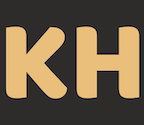Simplify Go Development: Boost Your Productivity with Powerful Tools
As a Go developer, you know the importance of maintaining a clean and efficient development workflow. To enhance productivity and code quality, it’s crucial to streamline your development process and automate repetitive tasks. In this article, we’ll explore some powerful tools and techniques that will simplify your Go development and make your coding journey more enjoyable.
1. Cookiecutter: Jump-Start Your Projects with Consistent Templates
Creating a new Go project from scratch often involves setting up a standard project structure and configuring essential files. This process can be time-consuming and error-prone. Cookiecutter comes to the rescue by allowing you to create project templates that come pre-configured with your desired project structure, dependencies, and settings.
To get started with Cookiecutter, first, you need to install it on your system:
pip install cookiecutterNext, find a suitable Go project template on GitHub or create your own. For example, you can use a custom Cookiecutter Go template created by the community, which provides a basic Go project structure:
cookiecutter https://github.com/your-username/golang-cookiecutterCookiecutter will prompt you to enter some project-specific details like project name, author, and repository name. Once you provide the information, it will create a new project directory with the desired structure and settings.
Customizing the template allows you to tailor it to your specific needs and preferences, ensuring consistent project setups across your team.
2. Air: Instant Live Reloading for Efficient Development
Waiting for your code to compile and run after every change can slow down your development process. Air is a fantastic tool that provides live reloading, allowing you to instantly see the changes you make to your Go code.
To install Air, you can use go get
go get -u github.com/cosmtrek/airOnce installed, create an air.toml configuration file in your project directory to specify the settings. Here's a basic air.toml example:
# air.toml
root = "."
tmp_dir = "tmp"
build_dir = "tmp/build"
log_dir = "tmp/log"
app_port = 8080Now, you can run Air in your project directory:
airAir will watch for any changes in your Go files and automatically rebuild and restart your application whenever you save a file. This instant feedback loop significantly speeds up your development iterations and improves productivity.
3. Pre-commit Hooks: Enforce Code Quality Before Every Commit
Maintaining code quality is essential for any project. Pre-commit hooks are scripts that run before every commit, ensuring that your code meets specific criteria before it’s committed to the repository. Common checks include code formatting, linting, and running tests.
To use pre-commit hooks, you’ll need to have Python and Git installed on your system. First, install the pre-commit package using pip:
pip install pre-commitNext, add a .pre-commit-config.yaml file to the root of your repository to specify the hooks you want to run:
# .pre-commit-config.yaml
repos:
- repo: https://github.com/golangci/golangci-lint
rev: v1.41.1
hooks:
- id: golangci-lintIn this example, we’re using the popular golangci-lint hook to perform code linting on our Go files.
After setting up the configuration, run the following command to install the hooks:
pre-commit installNow, every time you try to commit changes, the pre-commit hooks will run automatically, checking for any issues in your code. If any issues are found, the commit will be aborted until the problems are fixed.
4. Custom Pre-commit Hooks Repository: Share and Reuse Hooks Across Projects
While pre-commit hooks provide useful checks out of the box, you might want to add custom checks that are specific to your project. To share and reuse custom hooks across multiple projects, you can create a centralized pre-commit hooks repository.
First, create a new Git repository to store your custom hooks. In this repository, you can add your custom hook scripts, written in any language you prefer. For example, you can write a simple bash script to check for specific conditions in your project.
Once you have your custom hooks ready, add the repository to your project’s .pre-commit-config.yaml:
# .pre-commit-config.yaml
repos:
- repo: https://github.com/your-username/custom-pre-commit-hooks
rev: v1.0.0
hooks:
- id: custom-hookNow, when you run pre-commit install, it will fetch the custom hooks from the specified repository and include them in your pre-commit checks.
5. CLI-Based Development: Automate Tasks with a Custom Command-Line Interface
Command-Line Interfaces (CLIs) are powerful tools for automating tasks and managing complex projects. Cobra is a popular Go library that helps you build robust and interactive CLIs with ease.
To install Cobra CLI, run:
go install github.com/spf13/cobra-cli@latestOnce installed, you can use Cobra CLI to generate Cobra applications and command files. It simplifies the process of scaffolding your application, making it easier to incorporate Cobra into your Go project.
To create a new Cobra-based application, run:
cobra-cli init myappThis command will generate a basic Cobra application with the necessary files and structure. You can then define your commands and their corresponding actions in separate files.
For example, to create a new command that prints a greeting message, you can run:
cobra-cli add greetingCobra CLI will create a new greeting.go file with a basic command structure. You can customize this file to implement the functionality of the greeting command.
With Cobra CLI, you can rapidly develop feature-rich CLI applications and automate various tasks, enhancing your development workflow.
Conclusion
Simplifying Go development is crucial for enhancing productivity and maintaining code quality. By integrating tools like Cookiecutter for consistent project templates, Air for instant live reloading, Pre-commit hooks for code quality checks, a custom pre-commit hooks repository for sharing and reusing hooks, and Cobra CLI for building powerful command-line interfaces, you can significantly streamline your Go development workflow.
Whether you’re starting a new project or optimizing an existing one, adopting these tools and techniques will undoubtedly boost your development efficiency and make your Go coding journey more enjoyable. Embrace these powerful tools and take your Go projects to the next level of simplicity and effectiveness. Happy coding!
